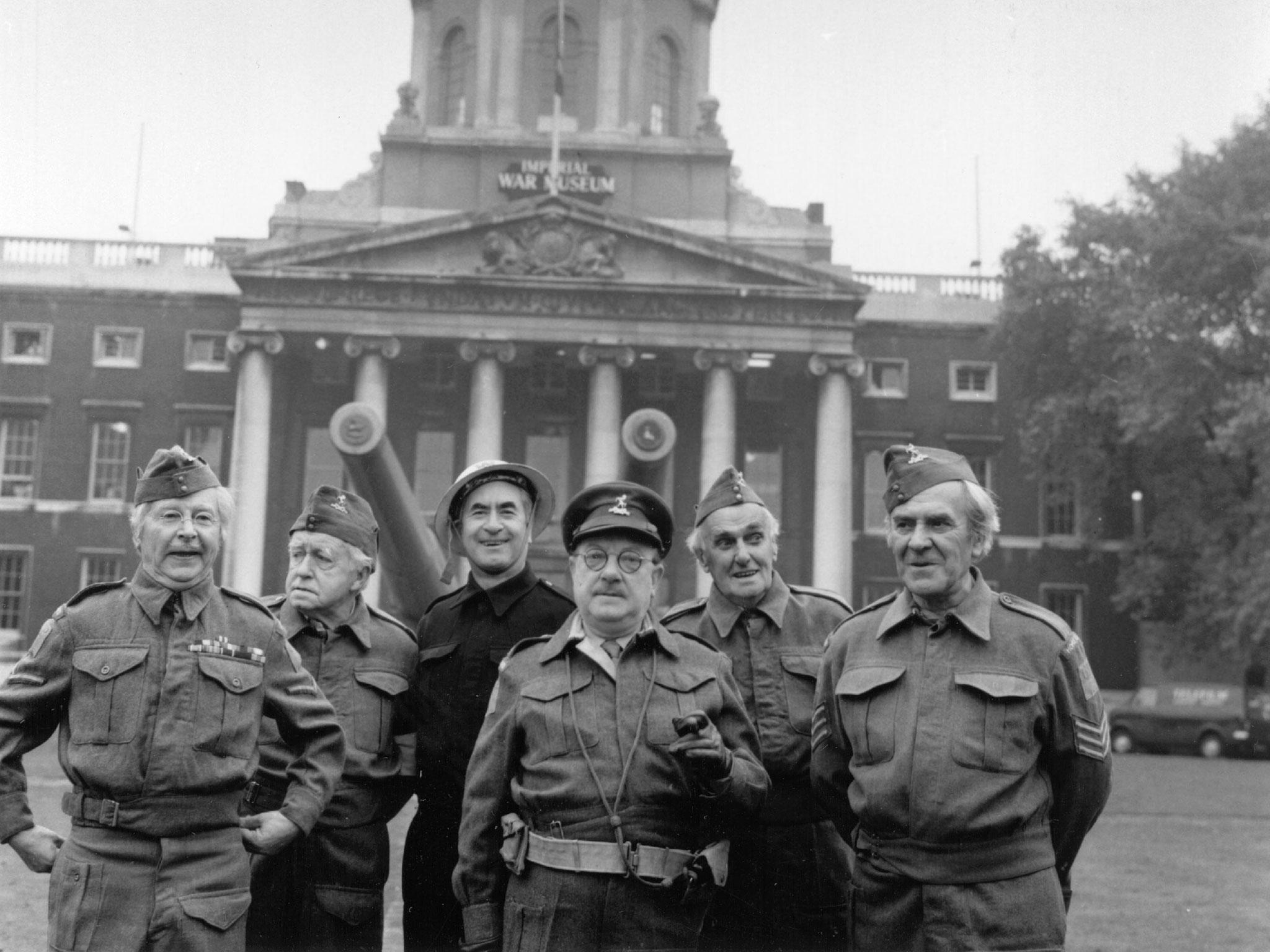Why ‘Dad’s Army’ still makes us laugh
For all their fractiousness, they really are all in it together

It seemed to me I was warned at inordinate length about Hurricane Sandy, given that I was 2,000 miles away from it.
The storm came and went, and much the same thing happened with the American election, which failed to live up to its billing as a cliffhanger, and about which I read a hundredth of what my newspaper offered me. Yes, yes, the fate of civilisation was in the balance, but with my poppy in my lapel, I kept thinking: "What about us?"
Then something came along to remind me of the last time we really were an "us". Clive Dunn, Corporal Jones of Dad's Army, died aged 92. Dunn actually did see action in the Second World War; he then joined the televisual home guard, and helped to reheat those wartime embers over nine series. Dad's Army still occupies BBC2 prime time every Saturday evening, reminding us of what Churchill was all too fatally right in calling our "Finest Hour". I myself own the boxed set and have watched every episode many times. One of my favourites is The Two and a Half Feathers, a maverick outing, perhaps written after a good lunch, in which Jones narrates an incident of the Battle of Omdurman concerning a platoon cursed by "an old fakir", relentlessly, and very funnily pronounced by the bumbling butcher as an "old fucker". (A peculiar characteristic of Corporal Jones, incidentally, is that he had less hair in 1898 than he did in the 1940s.)
The appeal of Dad's Army is that it is highly amusing and radiates a sense of security. The men are locked into twin hierarchies: the military and the social. Private Frazer plots to usurp Captain Mainwaring as leader of the platoon, but is shamed by one of Mainwaring's intermittent displays of heroics. In another episode Sergeant Wilson nearly becomes a full bank manager (as opposed to an assistant manager), but the branch he is given is blown up.
The world is reassuringly strictured. In the bank, Mainwaring reproves Pike for saying "Bye bye" to a female customer instead of "Good morning". But for all the fractiousness, the characters really are "all in it together".
In fact, a large part of the show's appeal to me personally is that church hall, with the bunting, the picture of the monarch, the dusty radiators, the stacks of folding chairs. I was born 20 years after the end of the war, but I had a church hall childhood: cub scouts, sea cadets, amateur drama. It was the big society before it needed capital letters and a political campaign.
But it is our keenness on recalling the Second World War that explains those incessant repeats. Among the bestsellers this Christmas will be Max Hastings' history of the conflict, All Hell Let Loose (a million copies sold), The Second World War by Antony Beevor, and Destiny in the Desert by Jonathan Dimbleby. An assistant in my local Waterstones pointed all these out as being Christmas bankers, notwithstanding – or perhaps because of – their traditionalist covers (in Beevor's case, nothing more ingratiating than a green map of the world). Dimbleby had recently given a talk at the store, and the audience had been "middle aged, yes, but not old" – not like the audiences you see for those wartime nostalgia shows called things like Keep Smiling Through that, along with tribute acts and spiritualists, prop up our provincial theatres. An ageing population will continue to favour the war history or novel, and there is always Michael Morpurgo to recruit the youngsters.
Do we favour the Second World War rather than the First? Morpurgo's great successes, Private Peaceful and War Horse, suggest not; Downton Abbey and Parade's End pointed the same way. But anxiety has already been expressed that the centenary of the Great War might turn into a celebration of barbarism. We can be sure that no such neuroses will surround the 70th anniversary of the D-Day landings, also planned for 2014.
In The Great War and Modern Memory, Paul Fussell suggested that the First World War was so traumatic as to break free of its historical moorings, becoming "the essential condition of consciousness in the 20th century", but he also suggested that in many minds the two wars are elided. My own suspicion is that most Britons think of 1914-18 as a sort of ham-fisted rough draft for a narrative that achieved perfection in 1939-45.
Certainly the two are elided in Remembrance Sunday. That is our sacred day, and the Cenotaph is our sacred site, far more so than any cathedral. Michael Foot never recovered from wearing what he called "a perfectly smart green jacket" and others called a donkey jacket on Remembrance Sunday in 1981. Last year, Charlie Gilmour said in court that he didn't know what the Cenotaph was. He found out when he got 16 months for swinging from it during the student riots.
Central to our politics is what Christopher Hitchens once called "the cult of Churchill". The central credo of the cult is "do not appease", hence the Falklands War, and Blair's involvement in Iraq. Hitchens's essay on the cult concerned its appeal in America as well, but it was written 20 years ago, and the bust of Churchill to which George Bush had given pride of place was returned by Obama to the British embassy whence it came.
Soon, we will have Churchill all to ourselves again, and the danger is that we share the fate of the Old Bulldog in retirement: a befuddled depression at our lost glories, relieved only by outbursts of charm and heavy drinking ... and humour, of course: so here's to Clive Dunn.
Andrew Martin is the author of 'The Somme Stations' (Faber)
Join our commenting forum
Join thought-provoking conversations, follow other Independent readers and see their replies
Comments